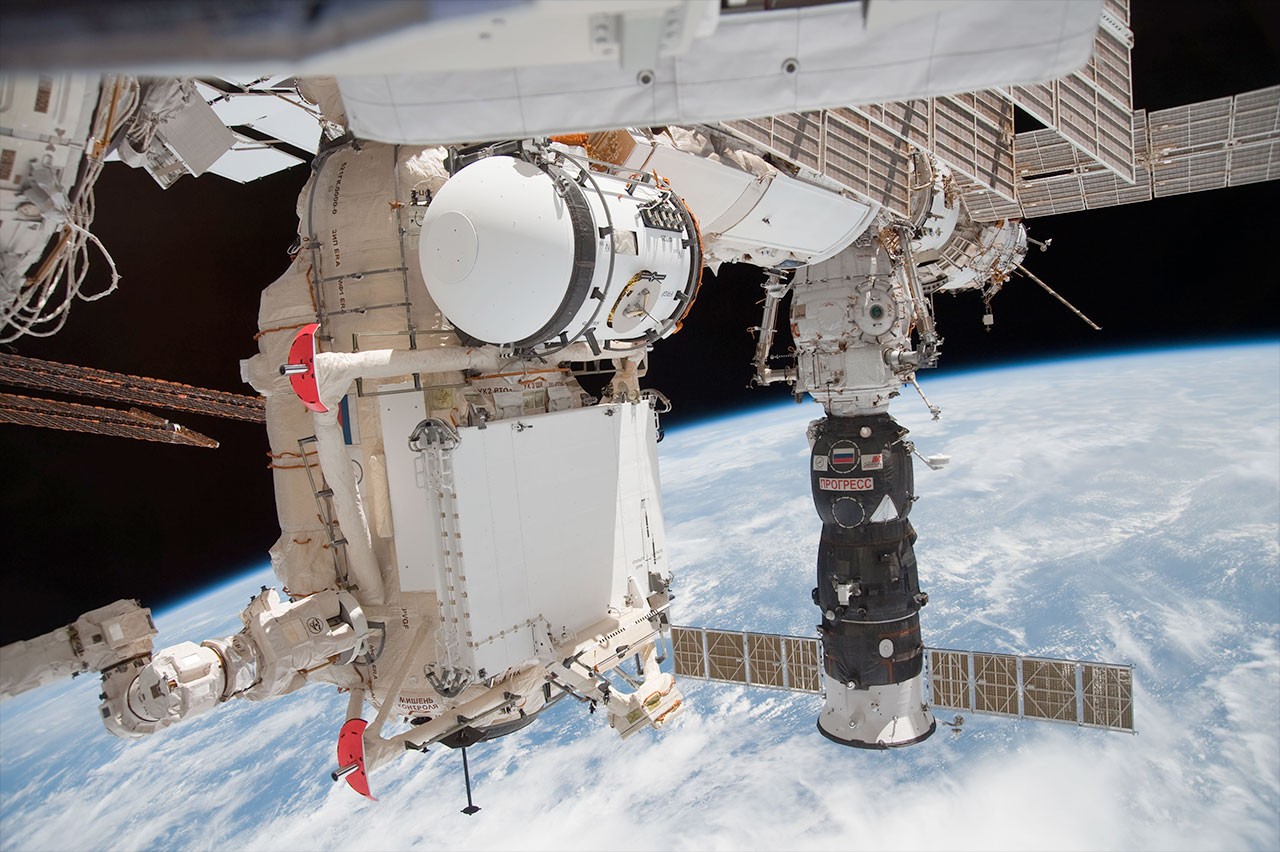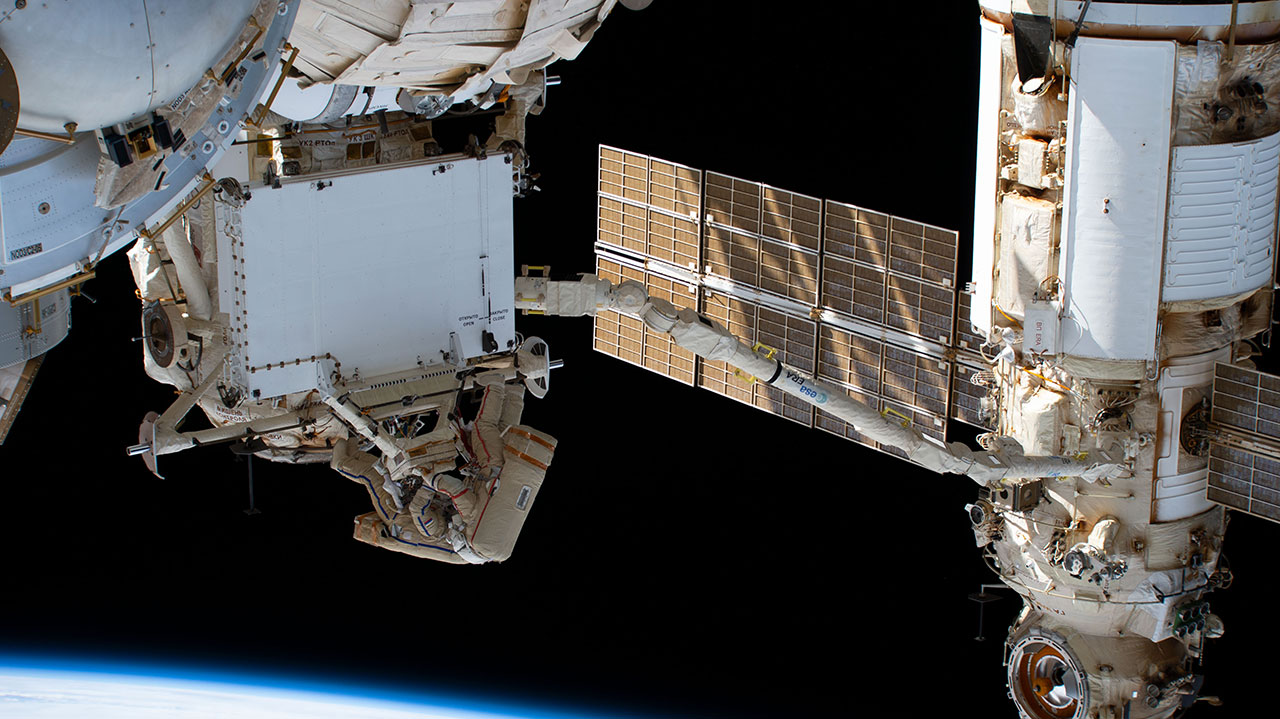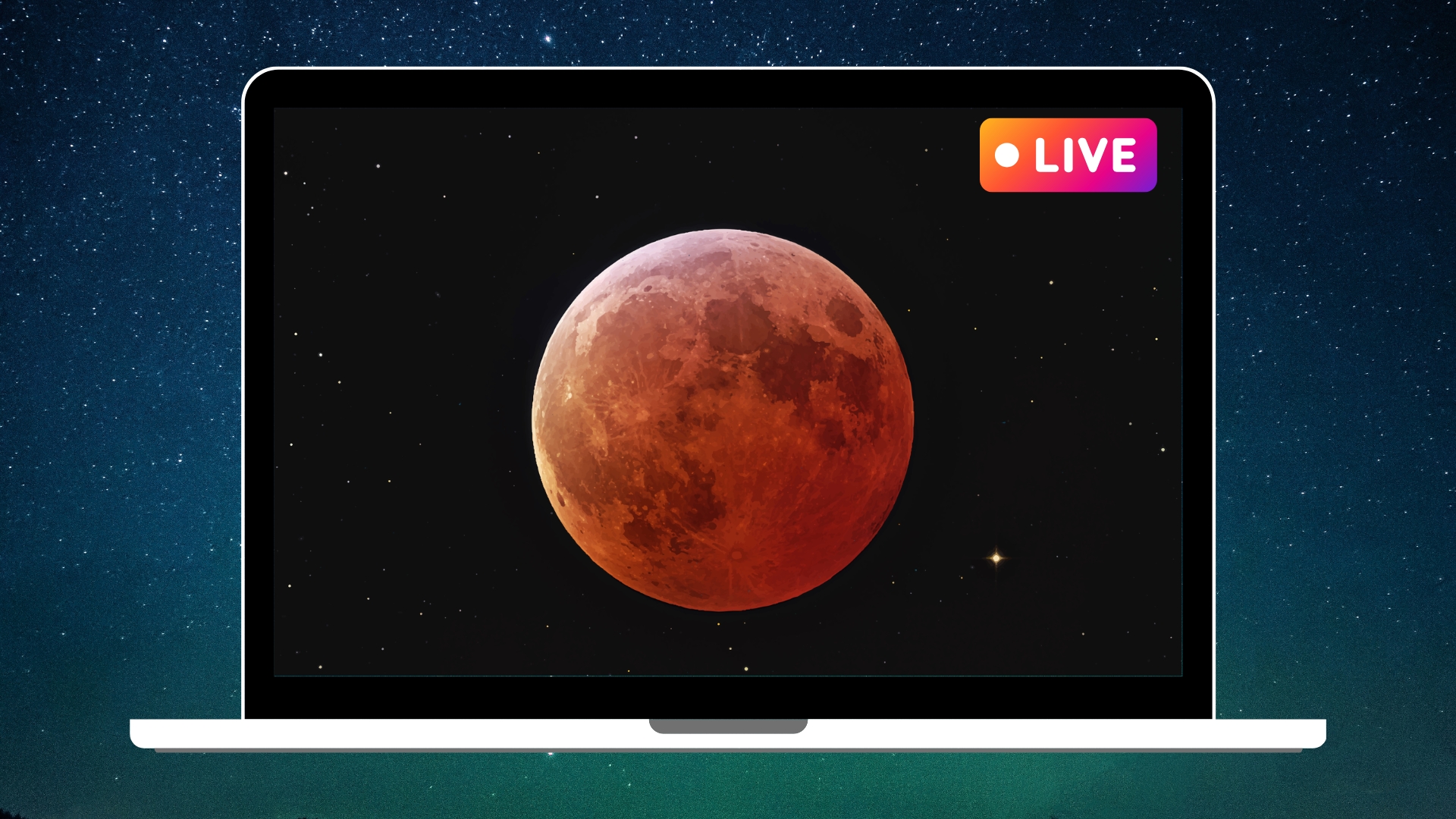Russian spacewalk to move airlock outside space station postponed
The extravehicular activity has been tentatively delayed until May.

Breaking space news, the latest updates on rocket launches, skywatching events and more!
You are now subscribed
Your newsletter sign-up was successful
Want to add more newsletters?
A Russian spacewalk to move an experiment airlock from one International Space Station module to another has been postponed, officials with the country's federal space corporation Roscosmos announced on Monday (April 24).
Expedition 69 commander Sergey Prokopyev and flight engineer Dmitry Petelin are still preparing for the extravehicular activity (EVA), but no longer planning to exit the International Space Station (ISS) on Tuesday night (April 25) as originally scheduled.
"The EVA … was postponed, tentatively, to the beginning of May due to the need for a more detailed study of its tasks," Roscosmos wrote in a statement posted to Telegram.
Related: International Space Station: Facts about the orbital laboratory
During the spacewalk, Prokopyev and Petelin are expected to assist from outside of the space station as fellow cosmonaut Andrey Fedyaev controls the European Robotic Arm (ERA) from inside the orbiting laboratory to transfer an airlock from the Rassvet mini-research module to the Nauka multipurpose laboratory module.
The airlock has been attached to Rassvet since 2010, when both it and the module were added to the space station by NASA's STS-132 crew on the space shuttle Atlantis. The move is being made to use the airlock with the newer Nauka laboratory.
"The airlock is designed to transport payloads outside of the ISS with the help of a manipulator and return them inside the station in the interests of the applied scientific research program," Roscosmos said.
Breaking space news, the latest updates on rocket launches, skywatching events and more!
No other details as to reason for the delay were given.
The delay comes a week after Prokopyev and Petelin performed a similar spacewalk to assist in and oversee the move of a radiator from Rassvet to Nauka. That EVA, conducted overnight from April 18 to 19, was successfully completed in 7 hours and 55 minutes, making for the third longest spacewalk in Russian history.
When the airlock EVA is rescheduled, it will be the fifth spacewalk in Prokopyev's career and third for Petelin. The two were also scheduled to perform a third spacewalk together on May 4 to deploy the previously transferred radiator, though when that EVA will occur is now subject to when the airlock move is rescheduled.
A U.S. spacewalk to continue preparing the space station for solar array upgrades is still going forward on Friday (April 28). NASA astronaut Steve Bowen will join Sultan Alneyadi, the first Emirati astronaut to perform an EVA, for the planned 6.5 hour outing beginning at about 9:15 a.m. EDT (1315 GMT).
Follow us @Spacedotcom, or on Facebook and Instagram.

Robert Pearlman is a space historian, journalist and the founder and editor of collectSPACE.com, a daily news publication and community devoted to space history with a particular focus on how and where space exploration intersects with pop culture. Pearlman is also a contributing writer for Space.com and co-author of "Space Stations: The Art, Science, and Reality of Working in Space” published by Smithsonian Books in 2018.
In 2009, he was inducted into the U.S. Space Camp Hall of Fame in Huntsville, Alabama. In 2021, he was honored by the American Astronautical Society with the Ordway Award for Sustained Excellence in Spaceflight History. In 2023, the National Space Club Florida Committee recognized Pearlman with the Kolcum News and Communications Award for excellence in telling the space story along the Space Coast and throughout the world.

